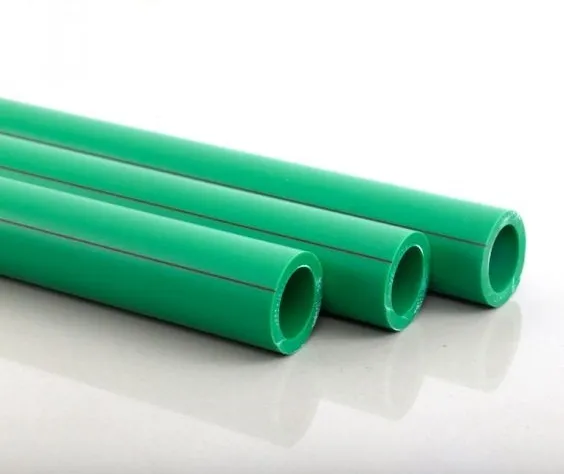Introduction
PPR (Polypropylene Random Copolymer) fiber composite pipes (ASTM F2389) have emerged as an innovative solution in the plumbing and piping industry. These pipes combine the strength of fiber reinforcement with the versatility of PPR, creating a durable and efficient piping system. Manufacturers of PPR fiber composite pipes offer a wide range of products suitable for various applications in residential, commercial, and industrial sectors.
Key Features of PPR Fiber Composite Pipes
- Multi-Layer Construction:
- Inner Layer: Made from PPR material, the inner layer provides excellent resistance to corrosion and scaling, ensuring a smooth flow of water or other fluids.
- Fiber-Reinforced Middle Layer: The fiber reinforcement in the middle layer enhances the pipe’s strength and pressure resistance, allowing it to perform effectively in high-stress environments.
- Outer Layer: The outer layer of PPR adds durability and protection against external environmental factors, such as UV radiation and chemical exposure.
- High Temperature and Pressure Resistance:
- These pipes are designed to withstand extreme temperature fluctuations, making them suitable for hot and cold water systems. The fiber composite structure enhances the pipe’s ability to resist high pressure without deforming or bursting.

- Corrosion Resistance:
- The PPR material is highly resistant to corrosion, ensuring the longevity of the pipes even in harsh chemical environments. This makes them ideal for both residential and industrial use.
- Reduced Thermal Expansion:
- The fiber reinforcement reduces the thermal expansion of the pipes, preventing sagging or deformation when exposed to high temperatures. This ensures a stable and reliable piping system.
- Eco-Friendly:
- PPR fiber composite pipes are made from recyclable materials, making them an environmentally friendly option. They are free from harmful chemicals like lead or other heavy metals, ensuring safe drinking water.
Applications of PPR Fiber Composite Pipes
- Residential Water Supply Systems: Ideal for domestic water distribution, these pipes can handle both hot and cold water supply efficiently.
- Commercial Plumbing Systems: Suitable for large-scale plumbing applications in hotels, hospitals, office buildings, and other commercial establishments.
- Industrial Piping: Used in industries for transporting chemicals, gases. And other fluids, where durability and resistance to harsh conditions are essential.
Advantages of PPR Fiber Composite Pipe Manufacturers
- Quality Assurance: Leading manufacturers use advanced production techniques to ensure that the pipes meet international standards for safety and durability. Regular quality checks and certifications guarantee a reliable product.
- Customization: Manufacturers often offer customization options to meet specific customer requirements, including different pipe sizes, colors, and fittings.
- Advanced Technology: PPR fiber composite pipe manufacturers invest in modern production facilities equipped with state-of-the-art machinery to produce high-quality pipes with consistent performance.
- Sustainability: Many manufacturers prioritize eco-friendly production processes and use recyclable materials, aligning with global sustainability goals.
Conclusion
PPR fiber composite pipe manufacturers play a critical role in delivering high-quality, durable piping solutions for various sectors. These pipes offer numerous advantages, including strength, flexibility, resistance to temperature, and corrosion, making them an ideal choice for modern piping systems. As more industries and households shift towards sustainable and efficient plumbing solutions. PPR fiber composite pipes are becoming an increasingly popular choice worldwide.